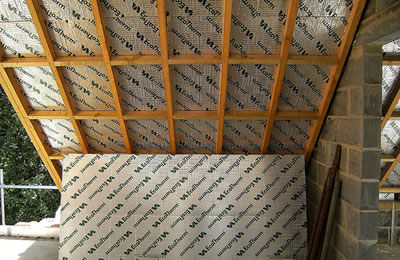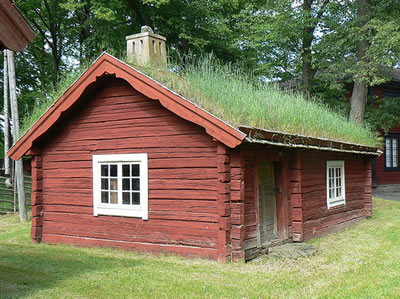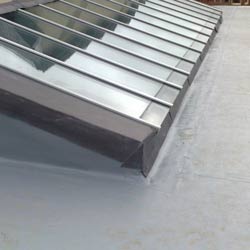A good roof serves many purposes. First and foremost it protects your house, providing cover from the elements, keeping out water, rain and excessive sunlight. However, arguably the most valuable function a roof fulfils is that of keeping out the cold and keeping in the heat. The fancy term for keeping in the heat is thermal insulation, and it plays a vital role in any new roofing installation.
Insulation
Insulation is the term used to describe materials that actively trap heat in your house. Many materials can be employed in the pursuit of maintaining comfortable heat levels in your home; whether its cellulose, glass wool, rock wool, polystyrene, wood fibre, plant fibre or some other insulating material, insulation keeps your home warm. Insulation often comes in the form of boards, which are layered, and then offset to trap heat and stop it from getting through the areas in which it is applied.
Why Does a Roof Need Insulation?
A roof covers a very large surface area on your house and if left untreated can be a significant source of heat loss from your house. A roof therefore needs good insulation to ensure that comfortable and reliable heat levels persist throughout the rooms below.
This is a matter of personal comfort and convenience, as a warm house is a welcoming, friendly and comfortable one. However, regulated heat levels are more important than simply personal preference, as they help your immune system fight off illnesses. In addition, comfortable heat levels affect your levels of happiness and general wellbeing.
How Insulation Works
Long gone are the days of thatched roofs; these days modern roofs can be incredibly detailed. Admittedly in some hotter climates, a simple flat roof might be all that’s needed, but due to the climate of the UK, there’s much more to a British roof than meets the eye.
Roofs can be quite complex; underneath the tiles or shingles there are multiple levels of roofing. Normally included are at least two layers of insulation. These insulation boards are often offset with staggered joints to minimise the transfer of warm air through the roof and out of the house.
Energy Efficiency
Keeping heat in your home has consequential benefits in terms of energy efficiency that are sometimes unrecognised. Insulation helps you to maintain comfortable temperatures in the home so as such, you won’t need to rely on heating quite so heavily, and what you do use is much more effective.
Good insulation leads to great levels of energy efficiency, which in turn can save you a lot of money. So while getting the best insulation can be costly initially, in the long run, it can be an excellent idea financially.
Getting the Best Insulation
After considering the benefits of having good insulation, it is therefore imperative that you get the best. Whether you’re having a new roof fitted, planning the installation of a new build entirely or simply repairing the existing roof, it is worth getting the best in insulation.
Check with the roofer or contractor you use and ask about the level of insulation your installation will have. If in doubt, it’s always best to over-compensate; you’ll really appreciate it as the nights start to get colder and winter draws in.
Conclusion
Roofing is an important part of any house and it is important that it is done well. When it comes to good roofing, insulation is important; it keeps the heat in your house, ensuring it is still warm and homely and it saves you money through improved energy efficiency.
Image credits: Martin Pettitt and Martin Pettitt




